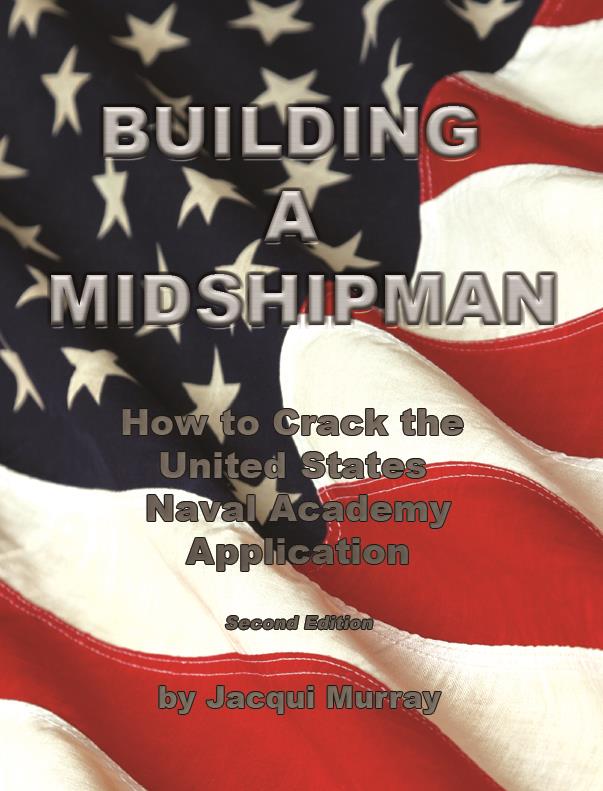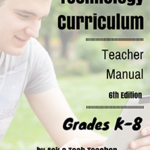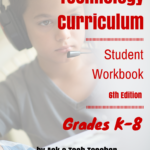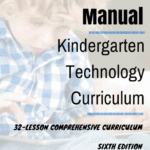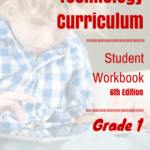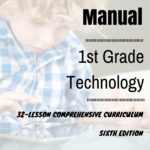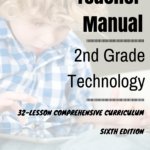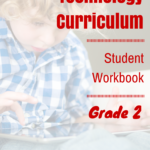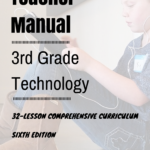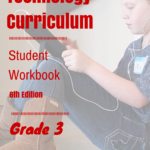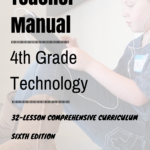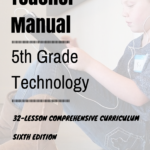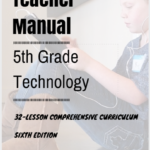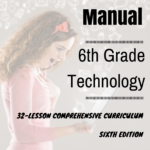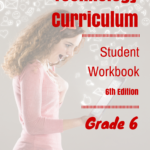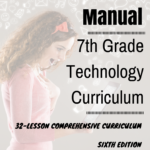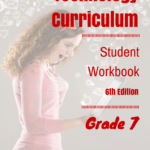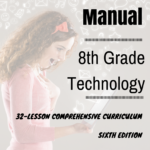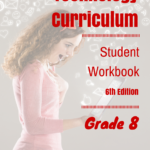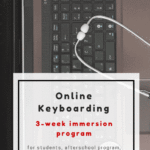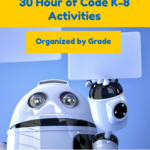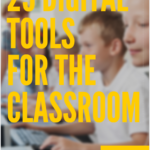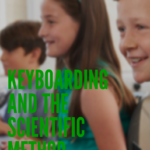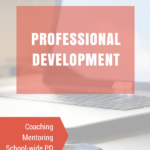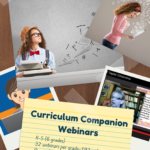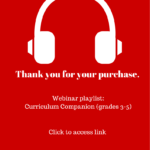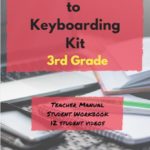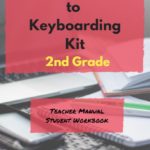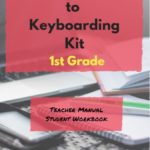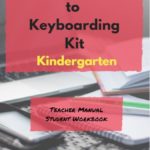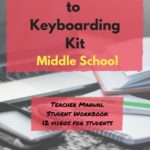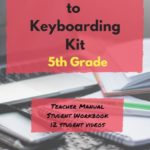Category: High School
How to Inspire High School Students to Pursue a Career in Software Engineering
.
 ,.
,.How to Inspire High School Students to Pursue a Career in Software Engineering

Photo courtesy of Pexels
Getting high school students excited about software engineering isn’t always easy. The subject sounds complex, the career path feels far away, and most teens have other things on their minds. Let’s explore how to spark interest early, show real-world impact, and give students a clear path from the classroom to a career in tech that actually feels achievable.
Connect Software Engineering to Real-World Impact
For most teens, talking about theory isn’t enough; what grabs them is knowing what builds the apps they use, the games they love, and the real tools behind everyday technology. When students realise software is behind everything from Spotify to Snapchat, it feels less like homework and more like something they already live with.
Once you have their attention, share real-world examples they haven’t thought about. Talk about engineers building tools for disaster relief, climate data, or accessibility tech. These stories show how coding helps people. If they’re serious about it long-term, something like a masters in software engineering online can help them build tools that change lives, not just screens.
And sometimes, the spark comes from seeing tech used in completely unexpected ways. Whether it’s farmers using software to monitor crops or artists using code to generate digital installations, these examples prove that software isn’t just for Silicon Valley, it’s everywhere.
Introduce Practical Skills Through Coding Programs
Letting students code, build, and see something work on screen changes their perspective entirely. Once they get that first small win, like a game that actually runs or a website that responds, they feel capable. That moment sticks with them, as it often does when students start planning early for a tech-focused future.
That feeling leads to questions, like how real developers do it, how bigger systems work, how software runs behind the scenes. Tools like Raspberry Pi, Unity, or basic app builders become stepping stones. If they keep pushing, they’ll eventually want something more serious. That’s where a masters in software engineering starts making sense, it becomes a goal, not just a dream.
Encourage Mentorship and Career Path Visibility
Students often struggle to picture themselves in tech because they rarely meet people who actually work in it. Bringing in mentors, whether recent grads or experienced engineers, makes the idea of a career in software feel a lot more reachable.
That shift matters, as it gives students a face, a voice, and a backstory to connect their own journey to, especially when they wonder if software engineering is still worth it in 2025. Once that connection forms, you have something real to build on. Mentorship helps replace doubt with direction, and that small shift can change everything.
One way to make that connection even stronger is through alumni panels, tech career days, or virtual Q&As with professionals. These moments let students ask honest questions, hear real answers, and picture themselves following a similar path, and with their own twist.
Endnote
Inspiring high school students to pursue software engineering starts by making it feel real. When they can see its impact, it no longer feels out of reach, especially when schools find creative ways to bring more technology into under-resourced classrooms. With the right support, tools, and guidance, students stop asking if they can belong in tech and start planning how.
Here’s the sign-up link if the image above doesn’t work:
https://forms.aweber.com/form/07/1910174607.htm
“The content presented in this blog are the result of creative imagination and not intended for use, reproduction, or incorporation into any artificial intelligence training or machine learning systems without prior written consent from the author.”
Jacqui Murray has been teaching K-18 technology for 30 years. She is the editor/author of over a hundred tech ed resources including a K-12 technology curriculum, K-8 keyboard curriculum, K-8 Digital Citizenship curriculum. She is an adjunct professor in tech ed, Master Teacher, freelance journalist on tech ed topics, and author of the tech thrillers, To Hunt a Sub and Twenty-four Days. You can find her resources at Structured Learning.
Share this:
- Click to share on Facebook (Opens in new window) Facebook
- Click to share on X (Opens in new window) X
- Click to share on LinkedIn (Opens in new window) LinkedIn
- Click to share on Pinterest (Opens in new window) Pinterest
- Click to share on Telegram (Opens in new window) Telegram
- Click to email a link to a friend (Opens in new window) Email
- More
Plan Ahead: How to Set Yourself Up for Success Toward a Career in Electrical and Computer Engineering
Plan Ahead: Set Yourself Up for a Career in Electrical and Computer Engineering
Regardless of where you are in your life or at what stage, if you have a dream that you want to achieve, you can start working toward that immediately. If your dreams include working as an electrical and computer engineer, then you can start at any stage of your education process to set yourself up for success.
This starts with taking useful courses whilst still in high school, so that you have to right credentials to get into the university you like, then it’s getting used to online learning, just in case you want to visit an online university and then understanding the future of what you need beyond a BA undergraduate degree like a masters. So, without further ado, it’s time to jump into this topic.
Pick the Right Subjects and Do Your Research
One of the biggest ways to set yourself up for a hopeful career in electrical and computer engineering is by picking the right subjects while you’re still in high school. This often includes IT classes, science, advanced mathematics and economics or technology, whichever your school offers. This will give you the right foundations on which to build toward a degree in this field.
If you have passed the stage of school and you’re simply interested in this degree, there are many things you can do as well. You can spend some time looking at complementary videos on YouTube, for example, that explain the core elements of computers, mathematics and coding, just so that you can put one foot in front of the other as you continue to learn.
Furthermore, you need to set yourself up for success by doing your research and finding the education that suits your needs best. This will be further outlined below.
Have Online Education Systems Replaced Traditional Lectures?
Online education has certainly become a lot bigger and more significant in the market over the past years. This is something that you should keep in mind when looking for where you want to study, as you can find an electrical and computer engineering online degree that gives you access to excellent information, whilst staying at home and being able to engage from all over the world. Digital learning is its own niche and those who have never done it before may not be aware of all the different benefits and challenges, so keep reading to learn more.
Benefits of Online Learning
One of the biggest benefits of online learning is the fact that you can do it from anywhere in the world. This means that you are not forced to stay in one area or classroom for the three or four years that it takes you to get your degree, allowing for a lot more mobility.
Another benefit is the fact that you can access education from all over the world. This means that if you’re in a remote part of a country, you do not need to leave all you know behind in search of excellent education; you can now easily find it online. This creates a saving as well, as you do not need to relocate in pursuit of education, which was once often the case. Also, you don’t have to spend hours commuting to and from an educational establishment, which is a plus.
Furthermore, you’re able to work at the same time, if you can handle it. By visiting an online course, you can slot the hours you need to study when you have the time. You’re not forced to be present between certain hours, giving you more flexibility in your day to do what you need, such as having a job.
Challenges of Online Learning
As with anything good, there are some drawbacks or challenges that you must consider. One of the biggest is self-efficacy and motivation. You have to have your head screwed on right so that you take the responsibility to learn and do as you need to. You have to manage your time well and constantly motivate yourself because no one else will. In online classrooms, you might have some interaction with fellow classmates and lecturers, however, it’s all through a screen and no one is there in person to push you to finish your essays or assignments. This means that the onus falls on you to complete everything.
The Future of Electrical and Computer Engineering
As with most courses, you start with a BA undergraduate degree. You then move on to your master’s, which is where you can pick between many different specialities. This will allow you to find the niche that you think suits you best. Perhaps you are more inclined toward management, in which case, you could learn more about engineering management as opposed to hands-on engineering if you think that you would do well as a leader.
You can always get in touch with the student and subject advisors of the establishment so that they can give you a better idea of the courses you can take and how you can build your curriculum in a way that suits you best.
Well, as you can see from the above, the world of education is changing. With the introduction of technology, things are moving quickly toward online learning and this development comes with certain benefits and challenges. It’s up to you to navigate them with the tools you have at your disposal so that you can earn that degree you’ve worked so hard toward.
Here’s the sign-up link if the image above doesn’t work:
https://forms.aweber.com/form/07/1910174607.htm
“The content presented in this blog are the result of creative imagination and not intended for use, reproduction, or incorporation into any artificial intelligence training or machine learning systems without prior written consent from the author.”
Jacqui Murray has been teaching K-18 technology for 30 years. She is the editor/author of over a hundred tech ed resources including a K-12 technology curriculum, K-8 keyboard curriculum, K-8 Digital Citizenship curriculum. She is an adjunct professor in tech ed, Master Teacher, freelance journalist on tech ed topics, and author of the tech thrillers, To Hunt a Sub and Twenty-four Days. You can find her resources at Structured Learning.
Share this:
- Click to share on Facebook (Opens in new window) Facebook
- Click to share on X (Opens in new window) X
- Click to share on LinkedIn (Opens in new window) LinkedIn
- Click to share on Pinterest (Opens in new window) Pinterest
- Click to share on Telegram (Opens in new window) Telegram
- Click to email a link to a friend (Opens in new window) Email
- More
Applying for a Military Academy
Military academies offer benefits most high school students and their parents don’t realize:
- the quality of education is comparable to an Ivy League
- they not only provide you with an education, but provide a job when you finish–no job hunting, no rejections,
- they pay you to go to school–that’s right, each of the four years, you are paid more to attend classes and complete the other activities required to graduate
- they are free–no charge for classes, books, room and board; they even pay for your summer school
But they are picky. Applying pits you against a huge pool of highly-qualified applicants. It’s not just about who has the best GPA and SAT scores. Admissions weighs:
- scholastics
- physical
- moral
- personal drive
To gain acceptance requires something different than the usual preparation. Here’s one book to prepare you:
Building a Midshipman
by Jacqui Murray
Available: Amazon
You don’t have to be a miracle-worker to the 10% of applicants accepted to a military academy, but you do need a plan. For the thousands of students who apply every year–and slog through the numbing concatenation of decisions preceding a nomination–there is no greater discouragement than the likely event that they will fail. This, though, is the Board’s peek into an applicant’s moral fiber and an important ingredient to the go/no go decision.
In the words of James Stockdale, USNA ’46 and Medal of Honor Winner: “The test of character is not ‘hanging in there’ when you expect a light at the end of the tunnel, but performance of duty and persistence of example when you know that no light is coming.”
This is the true story of Maggie Schmidt, an All-American kid who dreamt of attending the Naval Academy when her research into the typical Midshipman uncovered a profile alarmingly like herself. This book describes her background and academic interests, her focus, as well as her struggle to put together a winning admissions package. Along the way, you gain insight into the moral fiber that grounds everything she does and the decisions she must make that some consider impossible for an adolescent, but are achievable for thousands of like-minded teens. This workbook walks you through the long process, provides check lists of everything required, decision making matrices, goal-setting exercises to determine if USNA is a good fit for you, and a mix of motivation and academic advice to balance a decision that rightfully might be the biggest one most teens have ever made.
Share this:
- Click to share on Facebook (Opens in new window) Facebook
- Click to share on X (Opens in new window) X
- Click to share on LinkedIn (Opens in new window) LinkedIn
- Click to share on Pinterest (Opens in new window) Pinterest
- Click to share on Telegram (Opens in new window) Telegram
- Click to email a link to a friend (Opens in new window) Email
- More
Summer STEM at USNA
Summer STEM (Science, Technology, Engineering & Mathematics), is a week-long, overnight camp at USNA each year for students currently in the 7th-10th grades. Here’s information from the USNA website:
Engineering is all about creating, building, and making things better! So what does it take to be an engineer? If you like math and science, you are off to a great start. If you enjoy discovering new things, solving problems, and learning how things work – even better! Creativity, persistence, and the desire to make the world a better place are also important qualities. Becoming an engineer requires hard work and a good education. Our summer program will be a great start to your career in science and engineering.
The schedule:
Monday: Travel and Check-in
Tuesday: Air and Space Museum/DC Tour
Wednesday – Friday: Stem modules and presentations (Students will visit all science and technology majors at the US Naval Academy)
Saturday: Open House and Demonstrations—Share your new skills with your parents and friends. End the week by putting your projects on display.
Share this:
- Click to share on Facebook (Opens in new window) Facebook
- Click to share on X (Opens in new window) X
- Click to share on LinkedIn (Opens in new window) LinkedIn
- Click to share on Pinterest (Opens in new window) Pinterest
- Click to share on Telegram (Opens in new window) Telegram
- Click to email a link to a friend (Opens in new window) Email
- More
15 Best Technology Careers for the Future in 2025
From We Are Teachers, a run-down on the top tech careers for 2025:
15 Best Technology Careers for the Future in 2025
Computer and information technology might be one of the most exciting fields for teens to consider as they think about their future careers. These jobs are often very well paid (the average salary in this field is more than double compared to other occupations). The growth outlook for technology careers is terrific too, at around 11% over the next 10 years (the average for all jobs is about 4%). Here are some of the top tech jobs for high schoolers to consider as they plan for the future.
Share this:
- Click to share on Facebook (Opens in new window) Facebook
- Click to share on X (Opens in new window) X
- Click to share on LinkedIn (Opens in new window) LinkedIn
- Click to share on Pinterest (Opens in new window) Pinterest
- Click to share on Telegram (Opens in new window) Telegram
- Click to email a link to a friend (Opens in new window) Email
- More
The Intersection of Physics and Everyday Objects
The Intersection of Physics and Everyday Objects
Physics might sound like something confined to textbooks and whiteboard scribbles, but it’s at play in our daily routines. It’s the force behind flying planes, the sparkle in our smartphone screens, and the whispers in our wireless headphones. Yet, most of us barely give it a second thought—a silent magician bringing everyday objects to life.
The Mysterious Maglev: Hovering Trains
Picture trains levitating on tracks without a single touch. Introducing magnetic levitation trains, or maglevs. With magnets defying gravity, these trains speed commuters from A to B in record time. They float, frictionless, offering a surreal ride atop a powerful physics trick. Maglevs also reflect the elegance with which physics turns weight into weightlessness, claiming new limits in transportation. By manipulating magnetic fields, maglev technology reduces almost all physical resistance, demonstrating the pure potential of movement unbound by conventional constraints.
Maglev technology isn’t just a scientific curiosity—it’s a path to environmental sustainability. With reduced friction losses and increased energy efficiency, maglev systems could significantly lower carbon emissions compared to traditional rail systems. As the demand for greener transportation solutions grows, innovations like maglev promise a future where fast, reliable transportation doesn’t have to come at an environmental cost. Moreover, with fewer moving parts, maglev trains face less wear and tear, potentially reducing maintenance costs and extending lifespans, further contributing to cost-effectiveness and sustainability.
Gyroscopes: Spinning Wonders of Balance
From the wheel in your bicycle to your smartphone’s compass, gyroscopes are hidden heroes. This rapid-spinning gizmo stabilizes and guides, keeping you oriented whether you’re navigating a trail or piloting an aircraft. The secret? Angular momentum holds its ground, a scientist’s magic trick ensuring balance. On a more grand scale, these devices play a vital role in stabilizing large marine vessels and space stations, proving that, no matter the size, balancing forces play an important part in maintaining harmony against the forces of motion.
Gyroscopes have permeated sports and gaming sectors, adding depth to user experiences. Controllers and smartphones equipped with this technology allow for intuitive controls, making virtual environments more immersive. Detecting subtle tilts and movements, gyroscopes bring tactile realism to digital adventures, bridging the gap between the physical and digital realms. As entertainment industries continue embracing these dynamics, users experience a newfound synergy between movement and on-screen action, illustrating the evolving capabilities of gyroscopic innovation.
In the vein of precision measurement, smartphone sensors also facilitate groundbreaking tools such as smartphone-based goniometers, allowing accurate angle measurements in an accessible form. Such innovations highlight how even the most intricate movements can be captured and analyzed with everyday tech, further illustrating the seamless union between physics and present-day conveniences.
Thermal Imaging: Seeing Warmth
Engineering a vision into the unseen, thermal imaging devices capture heat. At night or behind walls, they reveal the world in reds and blues, turning warm bodies, even cool machinery, into vivid portraits. Heat detection isn’t just for spies; it informs safety checks and saves lives. Beyond safety, thermal imaging has also found purpose in medicine, offering non-invasive diagnostics by revealing underlying inflammation or circulation issues, truly extending the line between vision and intuition.
Thermal imaging has ventured into new territories, discovering uses in agriculture and environmental monitoring. In farming, thermal cameras help assess plant and soil health by spotting areas of water stress. Environmentalists use these devices to monitor wildlife habitats and detect abnormalities, contributing to conservation efforts. Such applications showcase how thermal imaging can penetrate fields far removed from its origins, yielding insights with far-reaching implications both on micro and macro levels.
Smart Lightbulbs: Playing with Light
Flipping a switch to light up a room feels mundane. Yet, beneath the glow, physics dances! Smart lightbulbs manipulate photons to brighten or dim your space. Through concepts like lumens and wavelengths, light transforms into an orchestrated show at your fingertips. Interestingly, smart bulbs can also adjust to your mood or time of day, elevating your home’s ambiance effortlessly. This simple act channels complex concepts of color temperatures and energy efficiency, enhancing our lives in subtle yet remarkable ways.
Beyond aesthetics, smart lightbulbs offer a gateway to energy conservation. By allowing users to customize brightness and color temperature, they can optimize lighting to suit different activities and moods while significantly reducing energy consumption. Integrating these bulbs with home automation systems also means they can respond automatically to natural daylight, further reducing unnecessary power usage and lowering electricity bills.
Wireless Waves: Invisible Highways
Every time you stream a song or text a friend, electromagnetic waves are hard at work. Wireless communication can’t exist without them. These waves traverse invisible highways, bringing data to your device in a blink. It’s the very foundation of our connected reality. At its core, wireless technology enables seamless interaction by allowing waves to jump between frequencies. These waves skip effortlessly through urban landscapes, ensuring reliable communication even in the most unexpected corners of our bustling environments.
Quantum Tunneling: Microscopic Magic
In the microscopic realm, quantum tunneling champions the bizarre. Electrons defy boundaries, traversing barriers with inexplicable ease. Essential for devices in medicine and computers, this mind-bending phenomenon rewrites the rules we take for granted in the macroscopic world. Such behavior allows for innovations in semiconductors that power our everyday devices and fuels breakthroughs in computing power, highlighting how minute dynamics hold colossal potential for technological progress.
Conclusion
Physics isn’t confined to labs or lectures—it’s intertwined with everything around us. With every step forward, every gadget grasped, we engage in a dance with forces those familiar formulas attempt to explain. The intersection of physics and everyday objects is where the ordinary transforms into the extraordinary.
–image credit: https://www.pexels.com/photo/gray-newton-s-cradle-in-close-up-photogaphy-60582/
Here’s the sign-up link if the image above doesn’t work:
https://forms.aweber.com/form/07/1910174607.htm
“The content presented in this blog are the result of creative imagination and not intended for use, reproduction, or incorporation into any artificial intelligence training or machine learning systems without prior written consent from the author.”
Jacqui Murray has been teaching K-18 technology for 30 years. She is the editor/author of over a hundred tech ed resources including a K-12 technology curriculum, K-8 keyboard curriculum, K-8 Digital Citizenship curriculum. She is an adjunct professor in tech ed, Master Teacher, freelance journalist on tech ed topics, and author of the tech thrillers, To Hunt a Sub and Twenty-four Days. You can find her resources at Structured Learning.
Share this:
- Click to share on Facebook (Opens in new window) Facebook
- Click to share on X (Opens in new window) X
- Click to share on LinkedIn (Opens in new window) LinkedIn
- Click to share on Pinterest (Opens in new window) Pinterest
- Click to share on Telegram (Opens in new window) Telegram
- Click to email a link to a friend (Opens in new window) Email
- More
Didn’t Get in College? Interested in the Military? Try NAPS
The Naval Academy Preparatory School (NAPS) is located on Naval Station Newport in historic Newport, Rhode Island. The Naval Academy Preparatory School is the Navy’s fourth oldest school; only the Naval Academy, Naval War College, and Naval Post Graduate School are older.
The mission of the Naval Academy Preparatory School is to enhance midshipman candidates’ moral, mental, and physical foundations to prepare them for success at the U.S. Naval Academy. The ten-month course of instruction at NAPS, lasting from August through May, emphasizes preparation in English Composition, Mathematics, Chemistry, Physics, and Information Technology.
Demanding military, physical and character development programs complement the academic preparation to fully prepare students for the challenges of life at a service academy. As part of the physical development program, NAPS offers a varsity athletic program that competes against other preparatory schools, junior colleges and college junior varsity teams.
Curriculum
-
Academics: Core courses like mathematics (typically pre-calculus or calculus), English, chemistry, and physics. These mirror the foundational subjects at USNA, giving students a head start.
-
Physical Training: Intense physical conditioning to meet the fitness standards of the Naval Academy, including swimming, running, and strength exercises.
-
Military Training: Leadership development, naval customs, and discipline to instill the ethos of a future naval officer.
Admissions
Life at NAPS
Outcomes
Share this:
- Click to share on Facebook (Opens in new window) Facebook
- Click to share on X (Opens in new window) X
- Click to share on LinkedIn (Opens in new window) LinkedIn
- Click to share on Pinterest (Opens in new window) Pinterest
- Click to share on Telegram (Opens in new window) Telegram
- Click to email a link to a friend (Opens in new window) Email
- More
From Play to Profession: Why Kids Should Discover Skilled Trades
This is a topic dear to my heart–non-college options for high school grads. The Ask a Tech Teacher team has a good summary of why students should consider journeyman trades and vocational schools over college:
From Play to Profession: Why Kids Should Discover Skilled Trades
For years, the dominant message to young people has been that college is the only pathway to success. However, a growing number of educators, industry leaders, and parents are recognizing the immense value of skilled trades. Not everyone needs to attend a four-year university to build a successful and fulfilling career. By introducing kids to trades early, we open up opportunities for them to explore careers that match their skills, interests, and personalities while also addressing critical workforce shortages. (more…)
Share this:
- Click to share on Facebook (Opens in new window) Facebook
- Click to share on X (Opens in new window) X
- Click to share on LinkedIn (Opens in new window) LinkedIn
- Click to share on Pinterest (Opens in new window) Pinterest
- Click to share on Telegram (Opens in new window) Telegram
- Click to email a link to a friend (Opens in new window) Email
- More
New Series on Military Careers for High School Students
This is a new Ask a Tech Teacher series on College and Career with a focus on military options.
High school students contemplating a military career should research extensively, speak with recruiters, and perhaps participate in preparatory or introductory military programs to make an informed decision. Each branch of the military has unique offerings, so aligning personal goals with the branch’s culture and opportunities is crucial. There are several pathways for post-HS: opportunities for personal development, education, and professional training. Here’s an overview:
- Join directly from High School:
-
Enlistment: Students can enlist in one of the six branches of the U.S. military: Army, Navy, Air Force, Marines, Coast Guard, and Space Force. This path typically requires passing the Armed Services Vocational Aptitude Battery (ASVAB) to determine suitability for specific roles. High school graduates can start as enlisted personnel, gaining hands-on experience in various military occupations.
-
Benefits: Enlisting offers benefits like tuition assistance, health care, housing, and retirement benefits. The military provides training in over 150 career fields, many of which only require a high school diploma or GED.
-
Programs for Experience: Programs like the Junior Reserve Officers’ Training Corps (JROTC) in high schools can provide students with early exposure to military life, teaching leadership, citizenship, and discipline.
-
- Attend college before entering the military:
-
Service Academies: High school students can apply to one of the U.S. military academies (e.g., West Point for Army, Naval Academy for Navy, etc.), which offer a combination of college education and military training. These are highly competitive and require congressional nomination. Graduates earn a commission as officers.
-
ROTC (Reserve Officers’ Training Corps): This program allows students to attend college and receive military training simultaneously. Upon graduation, ROTC participants commit to a period of service as an officer. The program offers scholarships that can cover tuition, fees, and other expenses.
-
This series will delve into making the military part of college-career choices. Here are some of the articles you’ll see with links to those already published:
- 5 Must-do Skills to Accomplish During High School
- 9 Secrets for Getting into a Service Academy
- 11 Ways to Become a Navy Officer and a Gentleman
- Apply for a Military Academy
- Average USNA Candidate
- ASVAB or a Service Academy? You Decide.
- College Bound: Take Inventory
- Didn’t get into a Military Academy? Try NAPS
- Goal Setting for a Fourteen-year-old
- OCS–an option
- STEM at USNA
- Successful USNA Graduates
- You’re a Sophomore and Interested in USNA
Here’s the sign-up link if the image above doesn’t work:
https://forms.aweber.com/form/07/1910174607.htm
“The content presented in this blog are the result of creative imagination and not intended for use, reproduction, or incorporation into any artificial intelligence training or machine learning systems without prior written consent from the author.”
Jacqui Murray has been teaching K-18 technology for 30 years. She is the editor/author of over a hundred tech ed resources including a K-12 technology curriculum, K-8 keyboard curriculum, K-8 Digital Citizenship curriculum. She is an adjunct professor in tech ed, Master Teacher, freelance journalist on tech ed topics, and author of the tech thrillers, To Hunt a Sub and Twenty-four Days. You can find her resources at Structured Learning.
Share this:
- Click to share on Facebook (Opens in new window) Facebook
- Click to share on X (Opens in new window) X
- Click to share on LinkedIn (Opens in new window) LinkedIn
- Click to share on Pinterest (Opens in new window) Pinterest
- Click to share on Telegram (Opens in new window) Telegram
- Click to email a link to a friend (Opens in new window) Email
- More
What is a Virtual HS?
Virtual high schools have become increasingly popular as technology has advanced and educational needs have evolved. Here is an overview of key data and trends associated with them:
Enrollment and Growth
- Enrollment Numbers: Virtual high schools have seen significant growth in enrollment. In the United States alone, millions of students are now taking at least one online course.
- Growth Rate: The growth rate for virtual school enrollments has been steady, with a marked increase during the COVID-19 pandemic, as traditional schools shifted to online formats.
Demographics
- Student Demographics: Virtual high schools serve a diverse range of students, including those who need flexible schedules, have health issues, are involved in professional sports or entertainment, or have experienced bullying in traditional schools.
- Geographic Reach: Students from urban, suburban, and rural areas are enrolling in virtual high schools, with significant growth in rural areas where access to advanced courses may be limited.
Academic Performance
- Performance Metrics: Studies show mixed results on academic performance in virtual high schools. Some students excel due to the flexibility and self-paced nature, while others may struggle without face-to-face interaction and structured environments.
- Standardized Test Scores: Virtual high schools often have varied results on standardized test scores compared to traditional schools, with some performing above and others below average.
Curriculum and Instruction
Share this:
- Click to share on Facebook (Opens in new window) Facebook
- Click to share on X (Opens in new window) X
- Click to share on LinkedIn (Opens in new window) LinkedIn
- Click to share on Pinterest (Opens in new window) Pinterest
- Click to share on Telegram (Opens in new window) Telegram
- Click to email a link to a friend (Opens in new window) Email
- More









